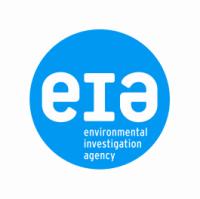EIA UK is seeking an experienced and engaged individual to join the Board of Trustees, with a view to replacing the outgoing Chair in 2020. We are seeking a Trustee who can provide strong leadership and steer the organisation through structural change.
This is an unpaid role, although reasonable expenses will be refunded in line with EIA UK policy.
In addition to the regular board meetings, which occur a minimum of four times a year (in normal times at EIA’s Islington, London office), the Chair would be expected to commit additional time for line management of the two most senior staff, conducting periodic board and staff appraisals, setting board agendas, approving minutes, representing the organisation and attending EIA events from time to time.
Trustees serve a term of three years, with potential for a further three years after the first term ends.
Role description
In addition to the general responsibilities of a Trustee (listed below), the duties of the Chair include the following:
- to provide leadership to EIA UK and the Board of Trustees by ensuring that everyone remains focused on the delivery of EIA UK’s charitable purposes and public benefit;
- where needed, to drive change and lead difficult conversations and decisions;
- to chair and facilitate board meetings and ensure discussions reach a clear conclusion;
- to ensure systems are in place to check that decisions taken at meetings are implemented;
- to act as a spokesperson for the Board, and for the charity, as appropriate;
- to work with the Clerk to the Trustees to plan the annual cycle of board meetings and other general meetings where required;
- to set the agendas for board and other general meetings, having regard to suggestions from Trustees of items that for consideration;
- to oversee the development of the Board of Trustees, including induction, training, appraisal and succession planning;
- to address conflict within the Board;
- to ensure that all Board Members are given the opportunity to express their views and that appropriate standards of conduct and behaviour are maintained;
- to approve draft minutes prior to circulation;
- to sign minutes and legal documents in accordance with relevant mandates;
- to act as line manager for the Executive Director and Campaigns Director, ensuring they have clear objectives and targets and are appraised at least once a year;
- to ensure that the Board of Trustees receives professional advice when it is needed, either from its senior staff or from external sources;
- to act between meetings of the Board in authorising action to be taken within the powers of the charity and any delegation agreed by the Trustees.
The duties of Trustees are as follows:
- to ensure that the charity has a clear vision, mission and direction and is focused on achieving these;
- to ensure that EIA UK pursues its stated objects, as defined in its governing document, by developing and agreeing a long-term strategy;
- to ensure that EIA UK sets goals in line with this strategy and evaluates performance against clear targets;
- to ensure that EIA UK complies with its governing document, charity law, company law and any other relevant legislation or regulations;
- to ensure that EIA UK applies its resources exclusively in pursuance of its charitable objects for the benefit of the public;
- to safeguard the good name and values of EIA UK;
- to ensure the effective and efficient administration of EIA UK, including having appropriate policies and procedures in place;
- to maintain proper financial controls and ensure that the charity’s assets are safeguarded;
- to ensure that risk assessments for the business of the charity are carried out and that risk is appropriately managed;
- to contribute to and share responsibilities for the Board of Trustee’s decisions;
- to exercise reasonable care, skill and independent judgment;
- to act reasonably and prudently in all matters relating to the charity;
- to be impartial and objective when making decisions and to act in accordance with the charity’s conflicts-of-interest policy;
- to maintain effective board performance and review this from time to time;
- to plan for succession so that retiring Trustees can be replaced;
- to represent EIA UK at functions and meetings (where this is helpful to management) and to act as an ambassador for EIA UK.
In addition to the above statutory duties, each Trustee should use any specific skills, knowledge or experience they have to help the Board of Trustees reach sound decisions. This may involve scrutinising Board papers, leading discussions, focusing on key issues, providing advice and guidance on new initiatives or other issues in which the Trustee has special expertise.
Person specification
Essential
- Leadership skills
- Experience of chairing meetings
- Tact and diplomacy
- Experience of line managing people
- Good communication and interpersonal skills
- Impartiality, fairness and the ability to respect confidences
- A passion for the work of EIA UK
- A willingness to engage contacts to advance the work of EIA Trust
- A willingness and ability to devote the necessary time and effort
- The ability to think strategically
- An understanding of the difference between governance and operational control and the role of a non-executive
- The ability to exercise good, independent judgement
- An ability to think creatively
- A willingness to speak their mind;
- An understanding and acceptance of the legal duties, responsibilities and liabilities of trusteeship
- The ability to work effectively as a member of a team
- A commitment to Nolan’s seven principles of public life – Selflessness, Integrity, Objectivity, Accountability, Openness, Honesty and Leadership
Desirable
- A wider involvement with the voluntary sector and other networks
- Experience of working at a senior management/leadership level
- Experience of the charity sector
- Add to My Account
<< Back
| 